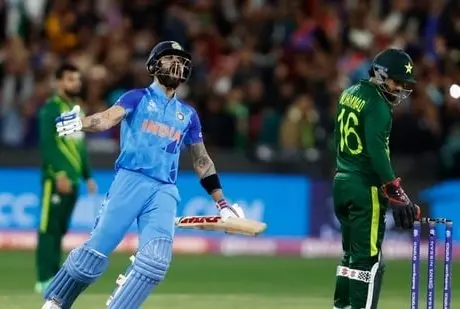
India bans bilateral sports with Pakistan after terror attack in Pahalgam
India Stops Bilateral Sports with Pakistan – On August 21, 2025, the Ministry of Youth Affairs and Sports in India made a big announcement: India will no longer play bilateral sports matches with Pakistan. This means Indian teams will not travel to Pakistan, and Pakistani teams will not be allowed to play in India.
The decision comes after a deadly terror attack in Pahalgam, Jammu and Kashmir, which has increased tensions between the two countries. While India will still take part in multilateral tournaments like the Asia Cup in the UAE, all direct sports ties with Pakistan are now officially banned.
Table of Contents
Why Did India Take This Step?
The terror attack in Pahalgam shocked the nation. Many people lost their lives, and the government believes the attack was linked to groups operating from Pakistan. In response, India has taken strong steps to show its disapproval.
One of these steps is stopping all bilateral sports events with Pakistan. This includes cricket, hockey, and other games where only India and Pakistan are playing each other. The government says this move is meant to send a clear message: terror and sports cannot go hand in hand.
Officials also said that India will continue to follow rules set by international sports bodies like the International Cricket Council (ICC). That’s why Indian teams will still play in tournaments where many countries are involved, such as the Asia Cup, which starts on September 9 in the UAE.
Mixed Reactions from the Public
The decision has created a lot of discussion on social media and news channels. Some people are supporting the ban, saying it’s a strong and necessary step. They believe India should not play with a country linked to terror activities.
Others are questioning the timing and impact. They say sports should be kept separate from politics, and stopping matches may hurt players and fans more than it hurts Pakistan. Some also worry that this could affect India’s image in global sports.
Here are a few common reactions:
- “This is the right move. We must stand strong against terror.”
- “Why punish sports and athletes? Let the game go on.”
- “India should go further and boycott all matches, even multilateral ones.”
Clearly, the public is divided. But most agree that the safety of citizens and the dignity of the nation must come first.
No Sports with Pakistan. What Happens Next?
With this ban in place, several upcoming matches between India and Pakistan may be canceled or moved to neutral venues. For example:
- Cricket series planned for later this year will not happen in India or Pakistan.
- Hockey and kabaddi matches may also be affected.
- Friendly tournaments and youth exchanges are likely to be paused.
However, India will still play against Pakistan in international tournaments like the Asia Cup, World Cup, and Olympics, if required. These events are organized by global bodies, and India wants to remain a responsible member of the international sports community.
The government has also said it will review the situation regularly. If tensions reduce and peace improves, the ban could be lifted in the future. But for now, the focus is on security, diplomacy, and national pride.
Final Thoughts: A Tough Call in Tough Times
India’s decision to ban bilateral sports with Pakistan is a serious and emotional step. Sports have always been a way to bring people together, even during difficult times. But when national security is at risk, tough choices must be made.
This move shows that India is ready to take a firm stand, even if it means sacrificing popular matches and fan excitement. It also reminds us that behind every game, there are deeper issues of peace, safety, and respect.
As the Asia Cup approaches, all eyes will be on how India and Pakistan face each other on neutral ground. But for now, the message is clear: India will not play games with terror.
Also read – Central Sector Airspace Closed: Pakistan’s Missile Tests or Military Drills Raise Regional Alarm
Blades of Vengeance: India Deploys Apache Choppers Along Pakistan Border After 15-Month Delay